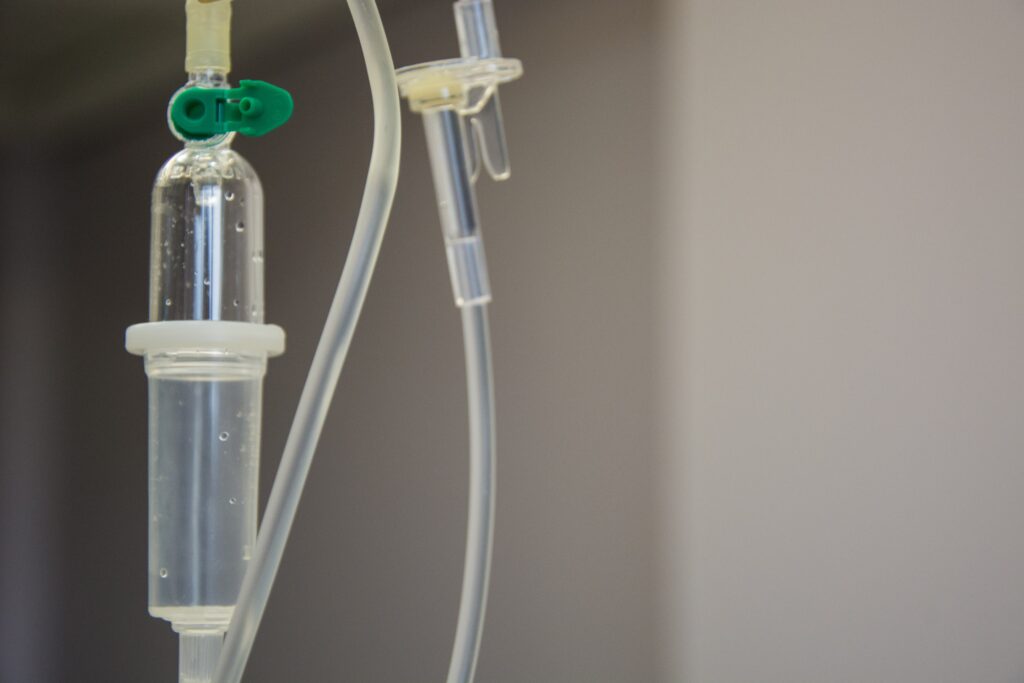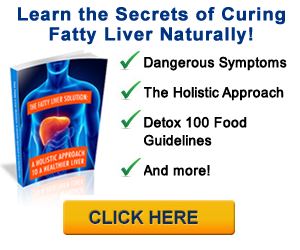The Ultimate Guide To Liver Health And Vitality.
In the bustling world we live in, maintaining good health is paramount. Your liver, a vital organ responsible for filtering toxins from your body, plays a crucial role in overall well-being. If you are looking for a comprehensive resource to enhance your liver health and vitality, look no further. This ultimate guide is packed with valuable information and practical tips that will empower you to take control of your liver’s health. From understanding the importance of liver function to incorporating liver-friendly foods into your diet, this guide is your go-to companion for a healthier, happier you. So, let’s embark on a journey of discovery and learn how to support and nourish your liver for optimal health and vitality.

Understanding the Liver
What is the liver?
The liver is an essential organ in the human body that plays a crucial role in maintaining overall health. Located in the upper right side of the abdomen, the liver is the second largest organ in the body, weighing around 3 pounds. It is responsible for more than 500 vital functions, making it a true powerhouse. From detoxifying harmful substances to producing important proteins, the liver is truly a multitasking organ.
Functions of the liver
The liver has numerous functions that are vital for maintaining optimal health. Some of its key functions include:
Detoxification: The liver filters the blood and removes toxins, drugs, and other harmful substances from the body.
Protein Synthesis: The liver produces important proteins, such as albumin, which help maintain the proper balance of fluids in the body.
Bile Production: The liver produces bile, a substance necessary for the digestion and absorption of fats.
Storage of Vitamins and Minerals: The liver stores vitamins A, D, E, K, and B12, as well as minerals like iron and copper.
Regulation of Blood Sugar: The liver helps regulate blood sugar levels by storing excess glucose as glycogen, which can be released when the body needs energy.
Hormone Regulation: The liver metabolizes hormones and helps maintain hormonal balance in the body.
Understanding the liver and its functions is crucial for maintaining its health and overall well-being.
Factors Affecting Liver Health
Poor diet
Your diet plays a significant role in maintaining liver health. Consuming a diet high in saturated and trans fats, refined sugars, and processed foods can put a strain on the liver. These unhealthy foods can lead to the accumulation of fat in the liver cells, causing fatty liver disease and increasing the risk of liver damage.
Excessive alcohol consumption
Excessive alcohol consumption is one of the leading causes of liver disease. Alcohol is toxic to liver cells and can cause inflammation and scarring, leading to conditions such as alcoholic hepatitis and cirrhosis. It is essential to limit alcohol intake and practice moderation to protect the liver.
Smoking
Smoking is harmful to every organ in the body, including the liver. It can impair liver function and increase the risk of liver cancer. Quitting smoking is not only beneficial for your lung health but also for the overall well-being of your liver.
Environmental toxins
Exposure to environmental toxins, such as industrial chemicals, pesticides, and air pollutants, can negatively impact liver health. These toxins can enter the body through various sources and put a strain on the liver’s detoxification processes. Taking precautions to limit exposure to these toxins is crucial for maintaining liver health.
Medications and supplements
Certain medications, especially long-term use of high-dose medications, can have adverse effects on liver health. It is important to follow the prescribed dosage and consult with a healthcare professional if you have any concerns. Additionally, some herbal supplements can also have potential interactions with medications and may affect the liver. Always consult with a healthcare professional before starting any new supplements to ensure their safety.

Signs and Symptoms of Liver Problems
Jaundice
Jaundice is a common symptom of liver problems and is characterized by a yellowing of the skin and eyes. It occurs when there is a buildup of bilirubin, a yellow pigment produced during the breakdown of red blood cells. Jaundice can indicate liver disease or other underlying conditions and should be evaluated by a healthcare professional.
Abdominal pain
Unexplained abdominal pain, especially in the upper right side, can be a sign of liver problems. This pain may be dull or sharp and may worsen after eating fatty or greasy foods. If you experience persistent abdominal pain, it is important to seek medical attention for a proper diagnosis and treatment.
Nausea and vomiting
Liver problems can cause nausea and vomiting, especially after meals. This can be due to impaired digestion and reduced bile production. If you experience persistent or severe nausea and vomiting, it is important to consult with a healthcare professional.
Fatigue and weakness
Feeling excessively tired or weak despite adequate rest and sleep can be a sign of liver problems. The liver plays a crucial role in metabolizing nutrients and producing energy. If the liver is not functioning optimally, it can lead to feelings of fatigue and weakness.
Swelling in the legs and ankles
Liver problems can cause fluid retention in the body, leading to swelling in the legs and ankles. This swelling, also known as edema, occurs when the liver is unable to produce enough albumin, a protein responsible for maintaining fluid balance. If you notice persistent swelling, it is important to consult with a healthcare professional to identify the underlying cause.
Maintaining a Healthy Liver
Balanced diet
A balanced diet is essential for maintaining a healthy liver. Include a variety of fruits, vegetables, whole grains, lean proteins, and healthy fats in your diet. Avoid or limit foods high in saturated and trans fats, refined sugars, and processed ingredients. Opting for organic and locally sourced produce can help minimize exposure to pesticides and other harmful chemicals.
Regular exercise
Regular physical activity is not only beneficial for overall health but also plays a role in liver health. Engaging in regular exercise can help maintain a healthy weight, reduce the risk of fatty liver disease, and improve liver function. Aim for at least 150 minutes of moderate-intensity exercise or 75 minutes of vigorous exercise each week.
Adequate hydration
Staying adequately hydrated is essential for liver health. Water helps flush out toxins from the body and keeps the liver functioning optimally. Aim to drink at least 8 glasses of water per day and adjust your intake based on your activity level and climate.
Limit alcohol intake
To maintain a healthy liver, it is important to limit alcohol intake. Moderation is key, and it is recommended to adhere to the guidelines set by health professionals. Women should consume no more than one drink per day, while men should limit their intake to two drinks per day.
Avoid smoking and secondhand smoke
Smoking and exposure to secondhand smoke can have detrimental effects on liver health. Avoiding smoking and secondhand smoke is crucial for maintaining a healthy liver. If you need assistance quitting smoking, seek support from healthcare professionals or support groups.

Nutrients for Liver Health
Vitamin A
Vitamin A plays a vital role in liver health and supports the liver’s detoxification processes. Include foods rich in vitamin A, such as carrots, sweet potatoes, spinach, kale, and liver, in your diet. Alternatively, you can consider taking a vitamin A supplement, but always consult with a healthcare professional before starting any new supplements.
B vitamins
B vitamins, especially B12, B6, and folate, are important for liver health. They support liver function and help in the metabolism of fats, proteins, and carbohydrates. Include foods like whole grains, legumes, lean meats, eggs, and leafy greens in your diet to ensure an adequate intake of B vitamins.
Vitamin C
Vitamin C is a powerful antioxidant that helps protect the liver from damage caused by free radicals. Include citrus fruits, strawberries, bell peppers, tomatoes, and broccoli in your diet to boost your vitamin C intake.
Vitamin E
Vitamin E is another potent antioxidant that helps protect liver cells from oxidative stress. Nuts, seeds, spinach, and broccoli are excellent sources of vitamin E.
Selenium
Selenium is a trace mineral that plays a role in liver health and detoxification. Brazil nuts, seafood, mushrooms, and whole grains are good dietary sources of selenium.
Including these nutrients in your diet can support liver health and contribute to overall well-being.
Herbs and Supplements for Liver Health
Milk thistle
Milk thistle is a well-known herb traditionally used to support liver health. It contains the active compound silymarin, which has antioxidant and anti-inflammatory properties. Milk thistle supplements are available in various forms, including capsules, extracts, and teas.
Dandelion root
Dandelion root has been used for centuries to support liver health. It has diuretic properties that help flush out toxins from the body. Dandelion root supplements can be found in capsule, tincture, or tea form.
Turmeric
Turmeric, a yellow spice commonly used in Indian cuisine, contains a powerful compound called curcumin. Curcumin has been shown to have anti-inflammatory and antioxidant properties that support liver health. Turmeric supplements can be found in capsule or extract form.
Artichoke extract
Artichoke extract is believed to support liver health by stimulating bile production and improving digestion. It is available in supplement form and can also be consumed as part of a balanced diet.
Schisandra
Schisandra is an herb used in traditional Chinese medicine to support liver health. It has antioxidant and anti-inflammatory properties that help protect liver cells. Schisandra supplements are available in capsule or extract form.
Before starting any herbal supplements, it is important to consult with a healthcare professional to ensure their safety and efficacy.
Detoxification and Liver Cleansing
The role of the liver in detoxification
The liver plays a crucial role in the body’s detoxification processes. It filters the blood, removes toxins, and metabolizes drugs and other harmful substances. The liver converts toxins into less harmful compounds, which are then excreted from the body. Supporting the liver’s detoxification processes is essential for maintaining overall health.
Natural ways to support liver detoxification
There are several natural ways to support liver detoxification:
Stay hydrated: Water helps flush out toxins and supports optimal liver function. Aim to drink at least 8 glasses of water per day.
Eat a nutrient-rich diet: Include foods rich in antioxidants, such as fruits, vegetables, and whole grains, in your diet. These help protect liver cells from damage caused by toxins.
Exercise regularly: Regular physical activity promotes blood circulation and supports the elimination of toxins through sweat.
Get enough fiber: Fiber helps promote bowel regularity and supports the excretion of toxins through the digestive system. Include fiber-rich foods like fruits, vegetables, whole grains, and legumes in your diet.
Avoid processed foods: Processed foods are often high in additives, preservatives, and artificial ingredients, which can add stress to the liver. Opt for whole, unprocessed foods whenever possible.
Liver cleanse programs
Liver cleanse programs are often marketed as a way to flush out toxins from the liver and improve its function. These programs typically involve dietary modifications, herbal supplements, and lifestyle changes. However, it is important to approach liver cleanse programs with caution and consult with a healthcare professional before undertaking them. Some programs may be unnecessarily restrictive or may have potential risks, especially for individuals with pre-existing health conditions.
Liver Diseases and Conditions
Fatty liver disease
Fatty liver disease occurs when there is an accumulation of fat in the liver cells. It can be caused by excessive alcohol consumption (alcoholic fatty liver disease) or non-alcoholic factors such as obesity, high cholesterol, and insulin resistance (non-alcoholic fatty liver disease). Fatty liver disease can progress to more severe conditions such as hepatitis and cirrhosis if left untreated. Lifestyle changes, such as losing weight, adopting a healthy diet, and exercising regularly, are key for managing and preventing fatty liver disease.
Hepatitis
Hepatitis refers to inflammation of the liver, often caused by viral infections (hepatitis A, B, C, D, and E) or alcohol/drug-induced hepatitis. It can lead to liver damage, cirrhosis, and even liver failure if not properly managed. Vaccinations are available for hepatitis A and B, and practicing safe sex, avoiding the sharing of needles or personal hygiene items, and limiting alcohol intake can help prevent hepatitis.
Cirrhosis
Cirrhosis is a late stage of liver disease characterized by severe scarring and irreversible damage to liver tissue. It can be caused by various factors, including chronic alcoholism, viral hepatitis, fatty liver disease, and autoimmune liver diseases. Cirrhosis can lead to liver failure and is a major risk factor for liver cancer. Treatment for cirrhosis focuses on managing symptoms, preventing further damage, and addressing underlying causes, if possible.
Liver cancer
Liver cancer, also known as hepatocellular carcinoma, is a form of cancer that starts in the liver. It is often associated with underlying liver diseases, such as cirrhosis, hepatitis B, or hepatitis C. Early detection and treatment are crucial for improving outcomes. Preventive measures, such as vaccinations for hepatitis B and hepatitis C, and regular health check-ups can help identify liver cancer in its early stages.
Autoimmune liver diseases
Autoimmune liver diseases, such as autoimmune hepatitis, primary biliary cholangitis, and primary sclerosing cholangitis, occur when the immune system mistakenly attacks the liver. These conditions can lead to liver inflammation, scarring, and impaired liver function if left untreated. Early diagnosis and prompt treatment are important to manage symptoms and slow the progression of autoimmune liver diseases.
Preventing Liver Diseases
Vaccinations
Vaccinations play a crucial role in preventing liver diseases such as hepatitis A and B. It is important to stay up to date with recommended vaccinations, especially if you are at a higher risk of exposure or have a pre-existing liver condition.
Safe sex practices
Practicing safe sex, such as using condoms and engaging in monogamous relationships, can help prevent the transmission of hepatitis B and C, which are major causes of liver disease and liver cancer.
Avoiding sharing needles or personal hygiene items
Sharing needles or personal hygiene items, such as razors or toothbrushes, can increase the risk of hepatitis B, hepatitis C, and other blood-borne infections. It is important to avoid sharing these items to protect yourself and others.
Medical precautions when traveling
If you are traveling to areas with a high prevalence of hepatitis or other liver infections, take appropriate medical precautions. This may include receiving vaccinations or taking preventive medications, depending on the specific risks associated with your destination.
Regular health check-ups
Regular health check-ups are essential for early detection and prevention of liver diseases. Routine blood tests can help identify any abnormalities in liver function, allowing for prompt intervention and treatment if necessary.
Taking Care of Your Liver
Limiting exposure to toxins
To protect your liver, it is important to limit exposure to toxins in your environment. This includes avoiding or minimizing contact with harmful chemicals, such as cleaning agents, pesticides, and industrial pollutants. Use protective gear when necessary and follow safety guidelines.
Maintaining a healthy weight
Obesity and excess body weight can increase the risk of fatty liver disease and other liver conditions. Maintaining a healthy weight through a balanced diet and regular exercise is essential for optimal liver health.
Managing stress levels
Chronic stress can have a negative impact on liver health. Find healthy ways to manage stress, such as through meditation, yoga, exercise, or engaging in hobbies. Seeking support from friends, family, or professionals can also be beneficial.
Getting enough sleep
Adequate sleep is crucial for overall health, including liver health. Aim for 7-9 hours of quality sleep each night to support optimal liver function.
Avoiding excessive use of painkillers
Long-term and excessive use of painkillers, especially those containing acetaminophen, can cause liver damage. Follow the recommended dosage and talk to a healthcare professional if you need to use painkillers regularly.
Taking care of your liver is essential for maintaining overall health and vitality. By understanding the liver, recognizing the signs and symptoms of liver problems, and adopting a healthy lifestyle, you can support your liver’s function and enhance your well-being. Remember to consult with a healthcare professional for personalized advice and guidance tailored to your specific needs.


